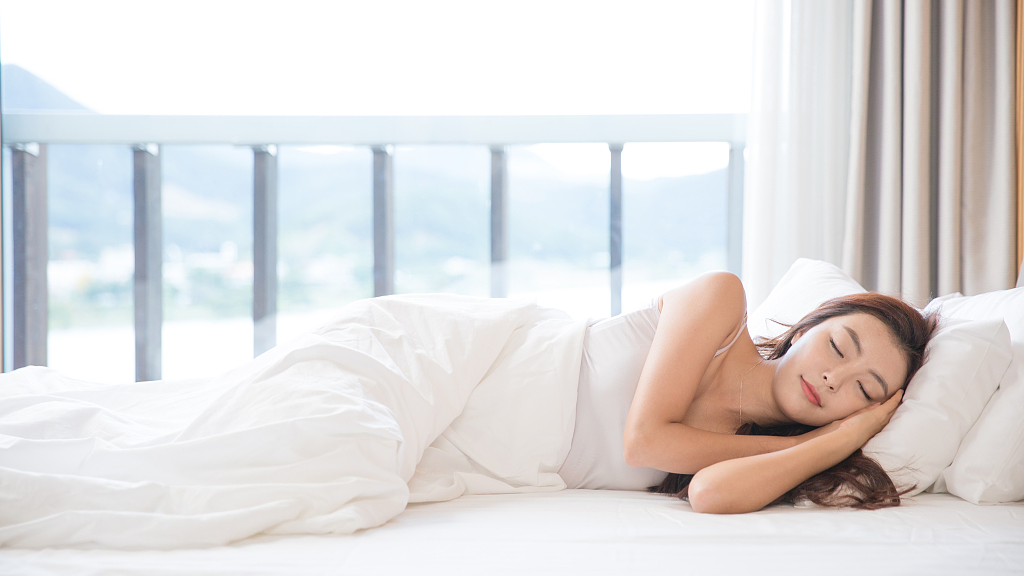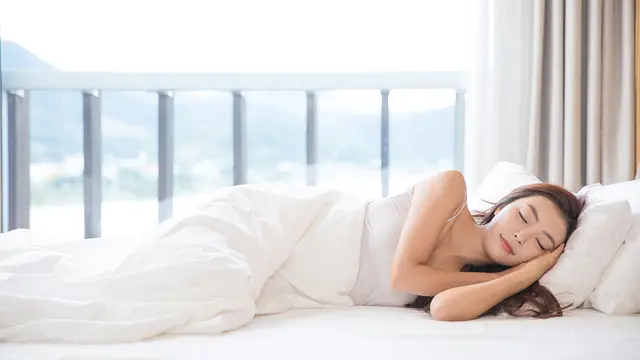
Chinese people went to bed two hours later over the past year, despite staying home longer amid the pandemic, CCTV News reported, citing a survey by the Chinese Sleep Research Society.
The survey shows that more than 300 million people in China have sleep disorders. More than three-fourths of respondents said they go to sleep after 11 p.m., and nearly one-third said after 1 a.m. Online searches for sleep disorders surged 43 percent in 2020.
The report became a hit on Chinese social media, with the related topics gaining over 110,000 comments on Weibo, China's Twitter equivalent, by Monday noon.
"For me, I just don't want to sleep when I'm sleepy, because only nighttime belongs to me," one Weibo user wrote. "I don't want to waste time sleeping." The post gained over 15,000 thumbs-up.
"For toilsome wage earners, some cannot even guarantee the eight hours of sleep," another Weibo user wrote.
Many users attributed the insomnia to heavy social pressure. "Anxiety turns into insomnia," read one comment. "There is too much pressure. I sleep light and am easy to wake up," read another.
The International Classification of Sleep Disorders (ICSD) lists more than 80 sleep disorders in eight majorcategories.
Wang Jian, director of the psychology department (Sleep Medicine Clinic) at Guang'anmen Hospital of China Academy of Chinese Medical Sciences, told CCTV News there are three standards when judging sleep disorders.
The first standard is that it takes over 30 minutes to fall asleep, over 30 minutes to fall asleep again after waking up, and you wake up 30 minutes earlier than usual.
The second standard is that the above issues happen more than three days a week. And the third standard is that these symptoms make you feel uncomfortable and disrupt your social activities.
In response to how much time is needed for sound sleep, Wang said it doesn't matter whether you sleep eight hours or not, the important thing is that you sleep for four or five cycles. One cycle involves light sleep, deep sleep and rapid-eye movement (REM) before waking up feeling refreshed.
 简体中文
简体中文












